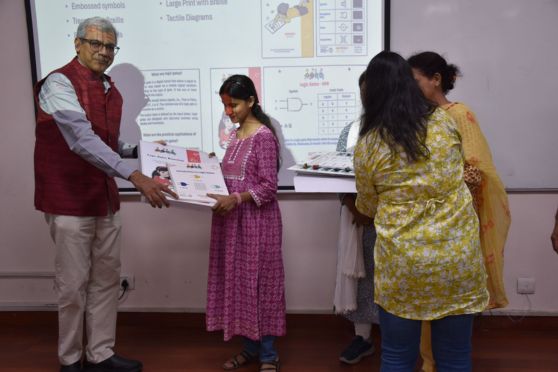Summary
In a landmark move towards empowering the visually challenged, the National Centre for Assistive Health Technologies (NCAHT) at IIT Delhi has introduced pioneering assistive products.
These advancements signify a significant step forward in making society more inclusive and accessible for the visually challenged.
In a landmark move towards empowering the visually challenged, the National Centre for Assistive Health Technologies (NCAHT) at IIT Delhi has introduced pioneering assistive products. Unveiled by Dr Rajiv Bahl, Director General of the Indian Council of Medical Research (ICMR), these innovations are set to significantly enhance visually impaired individuals' independence and educational opportunities. He emphasised the critical need for developing indigenous solutions to meet the unique needs of the visually challenged community. He highlighted the importance of creating assistive technologies that are tailored to the specific challenges faced by visually impaired individuals in India.
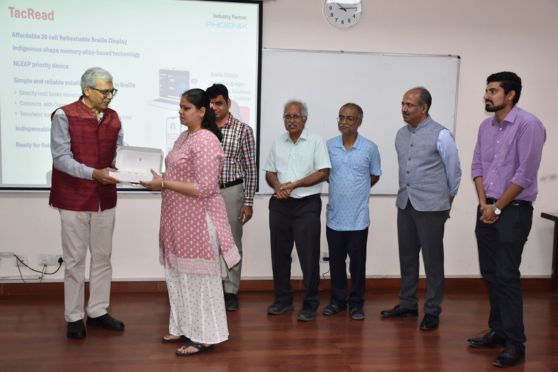
Unveiled by Dr Rajiv Bahl, Director General of the Indian Council of Medical Research (ICMR), these assistive products are set to significantly enhance visually impaired individuals' independence and educational opportunities. IIT Delhi
Professor Rangan Banerjee, Director of IIT Delhi, spoke about the institution's commitment to fostering social innovation through state-of-the-art research and development.
Groundbreaking Solutions for Inclusive Education and Mobility
The NCAHT, supported by ICMR, has developed several innovative products aimed at addressing key challenges faced by the visually challenged:
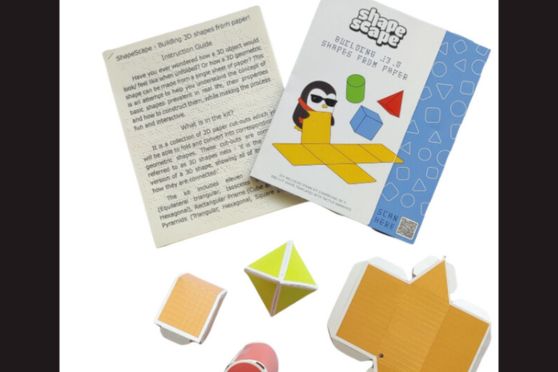
Shapescapes allows students to engage in a DIY (do-it-yourself) manner, making it an inclusive tool that can be used by sighted, low-vision, and visually impaired students. IIT Delhi
-
Shapescapes: This innovative geometry learning kit is designed to help visually challenged students understand complex geometric concepts. Shapescapes allows students to engage in a DIY (do-it-yourself) manner, making it an inclusive tool that can be used by sighted, low-vision, and visually impaired students. The kit is designed with principles of universal design, ensuring accessibility for all.
-
Accessible Kit for STEM Education: Developed to overcome challenges in learning electronics, this kit includes inclusive models featuring embossed symbolic representations alongside real components. It comes with a self-learning book that explains concepts through tactile diagrams, large print, and Braille. Manufactured by the Raised Lines Foundation, a not-for-profit social enterprise from IIT Delhi, this kit aims to make STEM education more accessible and engaging for visually challenged students.
-
High-Quality White Canes: The white cane is a fundamental tool for the independent and safe mobility of visually challenged individuals. Developed in collaboration with Kenstel Communications Private Ltd., these high-quality canes meet international standards and address significant issues found in locally manufactured versions. This development marks a substantial improvement in the mobility aids available to visually challenged people in India.
Advanced Technologies Entering User Trials
In addition to the launched products, NCAHT announced the commencement of large-scale user trials for two advanced assistive devices:
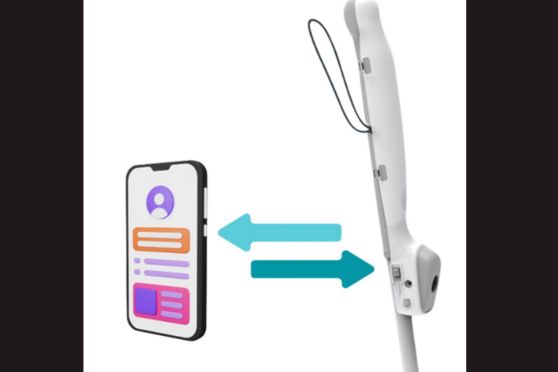
An upgraded version of the electronic travel aid, SmartCane Version 2 has been enhanced for better usability and user experience. IIT Delhi
-
SmartCane Version 2: An upgraded version of the electronic travel aid, SmartCane Version 2 has been developed in partnership with Phoenix Medical Systems and Saksham Trust, with funding from the Wellcome Trust. The original SmartCane, which has already been adopted by around 150,000 users worldwide, has been enhanced for better usability and user experience. The new version aims to address additional pain points and obsolescence issues, and it is currently undergoing extensive user validation trials.
-
Refreshable Braille Display (Tacread): Developed by the Assistech Lab at IIT Delhi in collaboration with Phoenix Medical Systems and Saksham Trust, the Tacread device represents a significant advancement in accessible technology. It allows visually challenged users to read digital text in Braille. This low-cost version of the Braille reader is undergoing large-scale user validation trials, promising to make digital information more accessible to the visually impaired.
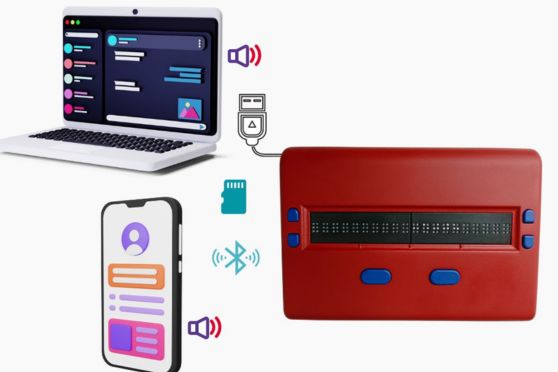
The Tacread device represents a significant advancement in accessible technology. IIT Delhi
The initiatives by NCAHT reflect a collective vision of enabling disability inclusion through innovative assistive technologies. By developing a range of solutions and services, NCAHT aims to ensure that every individual, regardless of their abilities, can live their life to the fullest.
Last updated on 27 Jun 2024
